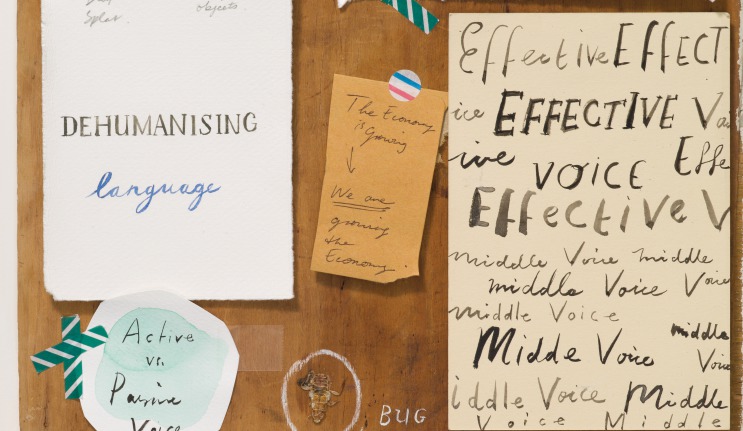
FEATURES
The war on words
Ever wondered how you find yourself agreeing with outrageous political comments, even if deep down you know you feel differently? It all comes down to wordplay, and once you know the tricks, you can use them to your own advantage.
When Bob Carr became foreign affairs minister in 2012, he compared Tony Abbott’s use of slogans such as ‘No more boats’ to a “trainee hypnotist trying to work wonders on a cobra in a basket”.
Yet despite this ridicule, the cobra – the media and the public that consumes it – still reacted; no surprise, considering the power that slogans wield.
“In our media-saturated society, slogans give a hook, a position in a nutshell that people can digest quickly,” says Professor Joseph Pugliese (BA/DipEd 1985), Research Director of Macquarie University’s Department of Media, Music, Communication and Cultural Studies.
“The smart thing Abbott did was to mobilise those slogans like mantras, so that they sunk into the subconscious landscape of this country. It created a succinct way to mobilise opinion against refugees and asylum seekers.
“The more you say it, the more normal it becomes – that’s the key. It normalises the message you want to get across, even though it could be outrageous or unacceptable – but you say it often enough and it becomes part of the landscape and people accept it as legitimate.”
Subconscious effect
What makes the use – and abuse – of language so insidious is its subconscious effect upon us.
“It (language) has this breathtaking reach in our lives – so for it to have that power and presence, it has to be really complex, but we have to be able to use it so that we don’t think about every word coming out of our mouths,” explains Dr Annabelle Lukin (PhD 2003), a Research Fellow at the Centre for Language and Social Life and Senior Lecturer in Linguistics. “Most of what’s going on linguistically is hard to see.”
Choosing words that conjure the right associations is key. As Lukin points out, the word ‘violence’, for example, creates different associations in most people’s minds than ‘war’.
“All of our associations around war are largely neutral or positive,” Lukin says. “For instance, we talk about people serving the nation, fighting for something – war is toward some greater good, so that’s entailed in the semantics. We’re far more likely to say he ‘fought and died’, not ‘he fought and killed’.
“There is an ideological schism in our language. If we validate the use of force it’s called war. If we don’t, it’s called violence, and it’s a violation, illegal and an infringement of people’s rights.”
In her research into the reporting of war, Lukin found that journalists almost never used the word ‘violence’ – except if they were talking about anti-war protestors.
“Even a protest by students in Sydney where a couple of chairs were thrown around gets reported as ‘violence in a protest in Sydney’.
“And then Bob Carr comes out and says it’s never okay to use violence to make a point, so there’s this heightened condemnation of violence by people protesting against the war, and at the same time the coalition is unleashing this whole bombardment on Baghdad that by conservative estimates, in that two-week period, killed … the absolute minimal figure would be 4000 civilians.”
Dehumanising language
The use of dehumanising language, where people are referred to as animals or objects, also relies on word associations.
However, dehumanising language seems to be especially favoured by the military. Pugliese, who wrote State Violence and Execution of Law: Biopolitical Caesurae of Torture, Black Sites, Drones, says “(US drone pilots) call the actual victims of drone strikes ‘bug splat’, and so basically they reduce humans to entomological waste.
“That animal language divests people of their human rights and reduces them to animal objects upon which violence can be performed legitimately and with impunity,” he adds. In other words, it makes it easier for soldiers to kill.
Closer to home, refugees arriving by boat are called illegal by the government – even though refugees actually do have the right to seek asylum under the Universal Declaration of Human Rights – and are referred to on Nauru and Manus Island as detainees, which sparks the connection in peoples’ minds with prison.
“It criminalises refugees and asylum seekers before the fact, it brands them as illegitimate, illegal and thus potentially criminal,” Pugliese says.
This is an excerpt from an article published in Sirius. Read the full story.